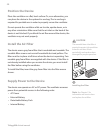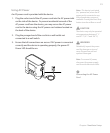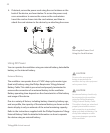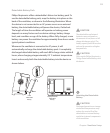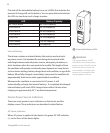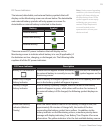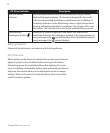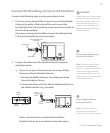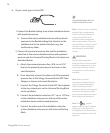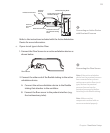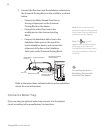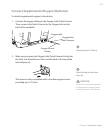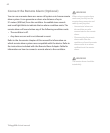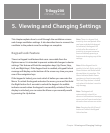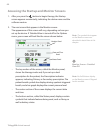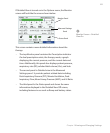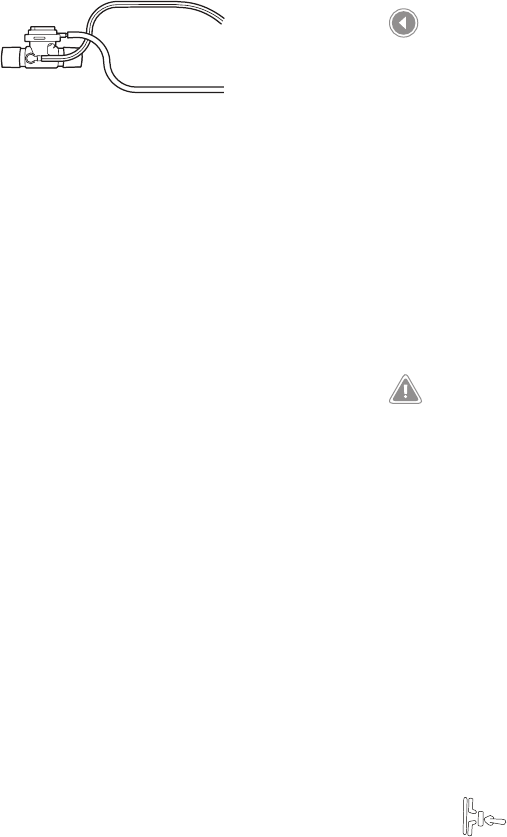
Trilogy200 clinical manual
58
b. If your circuit type is Active PAP:
1. Connect the exible tubing to an active exhalation device
with proximal pressure.
A. Connect the active exhalation device with proximal
pressure to the exible tubing that attaches to the
ventilator and to the patient interface (e.g., the
tracheostomy tube).
2. Connect the proximal pressure line and the exhalation
valve line to the active exhalation device with proximal
pressure and the Universal Porting Block on the device as
described below.
A. Attach the proximal pressure line (.476 cm or 3/16”
line) to the proximal pressure port as shown in the
next illustration.
B. If not attached, connect the other end of the proximal
pressure line to the Trilogy Universal Active PAP Tube
Adapter as shown in the next illustration.
C. Connect the Trilogy Universal Active PAP Tube Adapter
to the top, striped port on the Universal Porting Block
on the ventilator.
D. Connect the exhalation valve line (.317 cm or 1/8” line)
to the exhalation valve port on the top of the active
exhalation device with proximal pressure.
E. Connect the other end of the exhalation valve line
to the exhalation valve port on the Universal Porting
Block.
Active Exhalation Device
with Proximal Pressure
Note: Passive circuit ventilation
provides leak compensation
in both volume and pressure
modes. Active PAP circuit
ventilation does not provide
leak compensation. Particular
care should be used at low tidal
volumes to ensure adequate
monitoring of exhaled tidal
volume.
WARNING
For ventilator dependent
patients, always have alternate
ventilation equipment, such as
a back-up ventilator, manual
resuscitator, or similar device,
available.
Note: Make sure that
components marked with an
arrow are oriented properly.
When attaching an active
exhalation device with proximal
pressure to the patient, make
sure the proximal pressure port
faces away from the patient.
Note: The symbol
appears next to the Exhalation
Valve port on the Universal
Porting Block to indicate where
the active exhalation valve line
connects.



